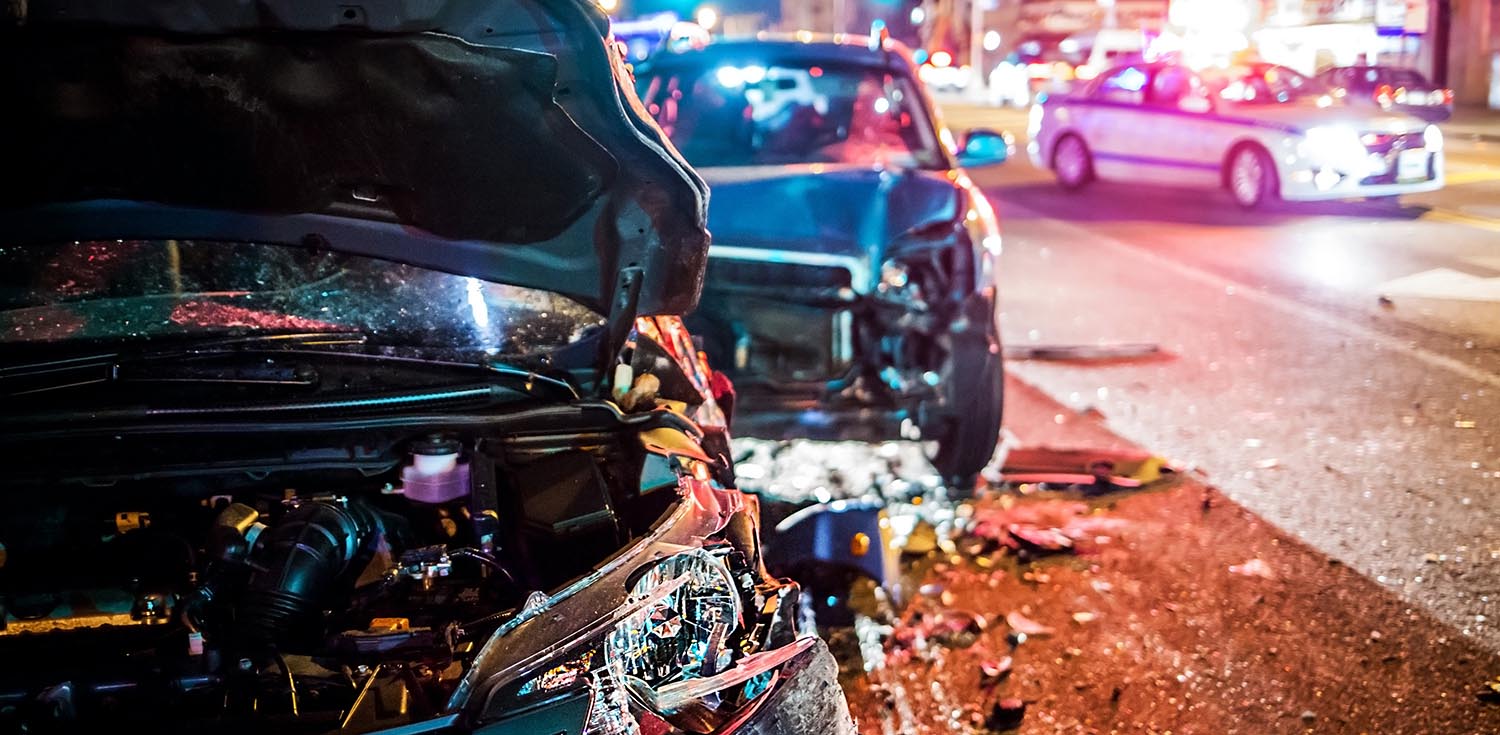
Since the State of Florida not only has a large population but also has the highest number of tourists visiting here each year compared to any other state in the country, many of our clients who are injured in motor vehicle accidents unfortunately find out that the driver of the vehicle that caused their accident either was completely uninsured or did not have any bodily injury (BI) liability coverage under his/her motor vehicle (auto) insurance policy. In this type of situation, in order for you to be compensated for your medical bills, other financial damages and any of your injuries received in the crash, you need to have uninsured motorist (UM) coverage under your own auto insurance policy in order to make any such recovery. If you do not have any such coverage, then in most situations, you will have not be able to receive reimbursement or compensation for any of your crash related damages or injuries.
So, what is uninsured motorist/underinsured motorist (UM/UIM) insurance coverage? This is an optional type of insurance coverage that is contained within your own auto insurance policy. In order to have it under your auto policy, you must have selected that type of coverage when you chose your policy (or sometime thereafter as you can always add it even after you originally obtain your policy) and you must have paid the additional premium that your insurance company charges in return for including that type of coverage within your auto policy. The reason it is an optional coverage is that Florida law does not require you to have UM/UIM coverage under your auto policy in order to be lawfully driving on the roads within the state of Florida. However, it is a highly recommended type of coverage to have under your auto policy due to the fact that Florida law also does not require insurance policies issued within the state of Florida to contain bodily injury coverage. This means that there is a good chance, if you are involved in a motor vehicle crash within the state of Florida, that the driver of the other vehicle that caused the crash will not have bodily injury coverage under his/her own auto policy.
UM coverage refers to the situation in which the driver or owner of the vehicle that caused your motor vehicle crash was completely uninsured or did not have bodily injury liability coverage under his policy. Underinsured motorist (UIM) coverage refers to the situation in which the other driver/vehicle does have some amount of bodily injury coverage but the amount that it has is insufficient to fully or fairly compensate you for all of the financial damages and/or injuries that you have sustained in the motor vehicle crash. Accordingly, that driver/vehicle is underinsured.
Be aware that both UM and UIM coverages apply only to you and other people occupying your vehicle at the time that the motor vehicle crash occurs and provide a source of insurance for you to collect from in the event that the crash was caused in whole or in part by another driver/vehicle. In other words, neither UM nor UIM coverage is available to protect you from any claims that may be brought against you by occupants of your own vehicle or any other vehicle that was involved in the crash. Those types of claims are covered by your bodily injury coverage. In addition to providing you with a source of insurance coverage to compensate you in the event that the other vehicle either has no insurance coverage at all or no bodily injury coverage or insufficient bodily injury coverage, it is important to know that UM coverage also is available to you if the at?fault party flees the scene or is unable to be identified, such as in a situation where you are involved in a hit?and?run type motor vehicle crash where the other vehicle that crashes into your vehicle or causes your crash to occur then flees the scene and you are unable to identify the owner or operator of that vehicle. In such a situation, you would then be entitled to seek recovery for your damages under your uninsured motorist coverage.
When you file either a UM or UIM claim, the actual defendant in any lawsuit that is filed is your own motor vehicle insurance company. They are actually named as the defendant in the lawsuit rather than the at?fault party. Moreover, under Florida law, a UM or UIM claim arising out of a motor vehicle crash is actually considered a breach of contract claim rather than a tort claim as you are suing your auto insurance company pursuant to the terms of the contract (your policy of insurance) that exists between you and your auto insurance company. This also means that the statute of limitations within the state of Florida on UM and UIM claims is 5 years, as it is governed by the "written contract" statute of limitations, rather than the 4 year "negligence" statute of limitations set forth within Florida law.
Other than that distinction, for the most part, a UM/UIM claim is subject to all of the same legal requirements that are involved when you file a tort/negligence claim against the at?fault driver of the other vehicle. For instance, in a UM/UIM claim, in order to be eligible to recover any type of non?economic damages such as your pain and suffering, loss of the enjoyment of life, loss of consortium, and other similar claims, you first must have sustained a "threshold injury" caused by the crash as set forth under Florida law, which generally means that you have incurred a permanent injury of some type as a result of the motor vehicle crash.
Other issues of significance in UM/UIM claims include the fact that if the at?fault vehicle has any degree of bodily injury coverage, in order for you to be eligible to recover UM or more specifically UIM damages, generally speaking you must first receive all of the bodily injury liability limits of the other vehicle before you will be eligible to recover any UIM damages under your own policy. In other words, the bodily injury limits of any at?fault vehicle must first be exhausted before you are able to recover any underinsured motorist benefits or damages from your own insurance company. There are a few exceptions to this that are quite complicated to explain in this short article but the general rule is as just stated.
Additional issues that warrant discussion include whether your UM/UIM benefits under your own policy are stackable or non?stackable. This type of issue comes into play when your auto insurance policy insures more than one vehicle. If it does, then your insurance company will ask you, assuming that you have elected to obtain and paid for UM/UIM coverage under the policy, whether you want that coverage to be stackable or non?stackable. Stacked coverage allows you to combine the coverage limits for each automobile insured under the policy in order to calculate the maximum amount of UM/UIM coverage that is available to you or anyone else in your vehicle that is eligible to file a UM/UIM claim. Non?stacked coverage means that the maximum amount that any one person would be eligible to recover is the per person policy limits listed on the policy. For example, if each vehicle under your auto policy has UM policy limits of $10,000.00 per person and $20,000.00 per accident/occurrence, and you have selected non?stackable coverage, then even if there is more than one vehicle insured under the policy, the maximum amount any one person would be able to receive in UM/UIM benefits is $10,000.00 and the maximum amount that would ever be paid out under that policy, regardless of the number of claims, is $20,000.00 per accident. On the other hand, if stackable coverage was selected and there were two vehicles insured under the policy, each having $10,000.00 per claim and $20,000.00 per accident/occurrence in UM/UIM policy limits, in that event the maximum amount that any one person could receive in UM/UIM benefits would be $20,000.00 and the maximum amount that would ever paid out for any one accident would be $40,000.00. You simply multiply the pertinent policy limits by the number of vehicles insured under your policy to determine the maximum amount of UM/UIM coverage limits that are available.
In some insurance policies issued within the state of Florida, your auto insurance company may require you to arbitrate rather than litigate in state court any UM/UIM claims that are made. Other policies provide this as an option rather than make it mandatory. We would need to review your actual policy carefully in order to properly advise you on whether any such provision exists within your policy and/or to determine what amount of coverage is available you on your claim. This article is not intended to cover any and all situations that may arise so please feel free to contact our firm if you are ever in a motor vehicle crash so that we can help advise you on what your options are and represent you in any claims that you may have.











